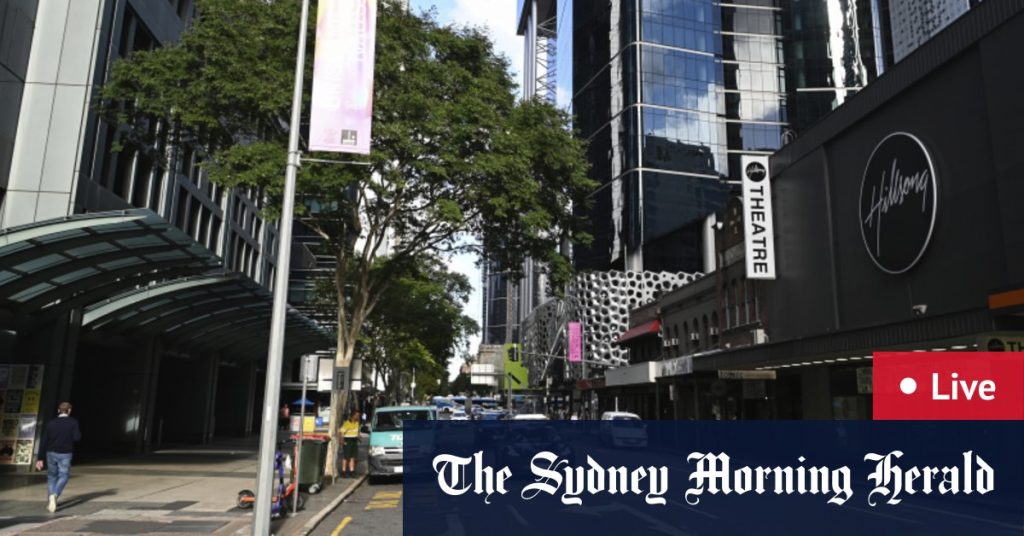Premier Steven Miles has expressed concern over the ongoing questions regarding Queensland’s plans for the Olympic and Paralympic Games, warning that they could jeopardize the prospects of Brisbane 2032. This comes after Brisbane 2032 president Andrew Liveris provided an update to the Olympic community in Paris, highlighting that $7.1 billion will be spent on new venues for the major event. However, the opposition has been using budget estimate committee hearings to raise doubts over the decision to abandon the Gabba rebuild in favor of upgrading the Queensland Sport and Athletics Centre, as well as the choice not to construct a new stadium at Victoria Park. The initial estimated cost of $1 billion for the Gabba rebuild was later revised to $2.7 billion, and an independent review ultimately found that it would not provide value for money.
Premier Miles emphasized that he had made efforts to persuade the public on the benefits of the Gabba rebuild, but ultimately decided against it due to concerns raised by Queenslanders regarding the expenditure. The ongoing debate and scrutiny surrounding the venue selection have overshadowed the substantial investment being made to host the Olympics, potentially damaging Brisbane 2032’s image and readiness for the event. The LNP, in response, has promised a 100-day review of the venues if they win the upcoming state election in October, signaling a potential overhaul in the event planning and venue allocation process. With the significant financial investments at stake and the need for efficient and effective venue selection, the decision-making process for Brisbane 2032 is under intense scrutiny and political pressure.
The decision to abandon the Gabba rebuild in favor of upgrading the Queensland Sport and Athletics Centre and not building a new stadium at Victoria Park has raised questions about the government’s priorities and strategic planning for the event. The revised cost estimates and independent review findings have further contributed to the skepticism and criticism from the opposition and the public, driving the need for transparency and accountability in the decision-making process. Premier Miles’ explanation of the decision-making process and the public sentiment behind it underscores the challenges and complexities involved in hosting a major international event like the Olympics. The political dynamics and public opinion surrounding the event planning reflect the heightened scrutiny and expectations placed on the government to deliver a successful and cost-effective Olympic experience for Queensland and Australia.
The implications of the ongoing debate and scrutiny on Queensland’s plans for Brisbane 2032 extend beyond just the venue selection process, impacting the overall perception of the event and the government’s ability to effectively manage and execute the preparations. Premier Miles’ warning about the potential damage to Brisbane 2032’s prospects highlights the need for a cohesive and unified approach to addressing the challenges and concerns raised by the opposition and the public. The LNP’s proposed 100-day review of the venues, if they come into power after the state election, signals a potential shift in the planning and decision-making process for Brisbane 2032, indicating a reevaluation of the current venue selections and investments. The pressure and scrutiny on the government to navigate these complex issues and deliver a successful Olympic and Paralympic Games in 2032 underscore the high stakes and expectations surrounding this major international event.
The move to shift away from the Gabba rebuild and focus on upgrading the Queensland Sport and Athletics Centre has sparked controversy and deliberation over the best use of resources and the long-term legacy of the event venues. The initial discrepancy in cost estimates, from $1 billion to $2.7 billion, coupled with the subsequent findings of the independent review, has raised doubts about the financial prudence and strategic vision behind the venue selection process. Premier Miles’ acknowledgment of the public sentiment against the Gabba rebuild underscores the importance of balancing public opinion with strategic planning and financial responsibility in hosting the Olympics. The LNP’s promise of a comprehensive review of the venues reflects the growing concerns and scrutiny surrounding the event planning and venue allocation, signaling a potential reevaluation of the government’s plans and decisions for Brisbane 2032.
In conclusion, the ongoing debate and scrutiny over Queensland’s plans for Brisbane 2032 present significant challenges and opportunities for the government, the opposition, and the public to collaboratively navigate the complexities of hosting a major international event. Premier Steven Miles’ warning about the potential damage to Brisbane 2032’s prospects emphasizes the need for proactive and strategic decision-making to address the concerns and criticisms raised by various stakeholders. The political dynamics, public sentiment, and financial considerations surrounding the venue selection process for the Olympics highlight the complexities and trade-offs involved in planning and executing a successful event. As the scrutiny and pressure intensify leading up to the state election in October, the government and the opposition must work together to ensure the transparency, accountability, and readiness of Brisbane 2032 for the global stage. The outcomes of the upcoming election and the subsequent 100-day review of the venues will play a crucial role in shaping the future of Brisbane 2032 and its legacy as a host city for the Olympic and Paralympic Games.













